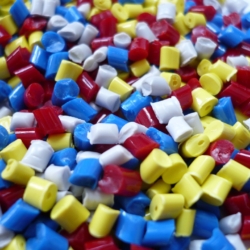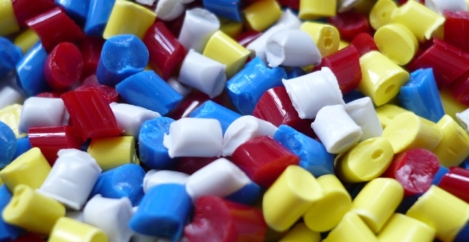August 3, 2024
How dissolvers shape polymer and plastic production
 Dissolvers or solvents are indispensable in modern manufacturing. These chemical substances are crucial in producing polymers and plastics, integral to countless industries, from automotive to consumer goods. To learn more about their role, check our solvents. Understanding how dissolvers shape polymer and plastic production provides insight into the complex chemistry behind everyday materials.
Dissolvers or solvents are indispensable in modern manufacturing. These chemical substances are crucial in producing polymers and plastics, integral to countless industries, from automotive to consumer goods. To learn more about their role, check our solvents. Understanding how dissolvers shape polymer and plastic production provides insight into the complex chemistry behind everyday materials.
Dissolvers or dissolving agents are substances, often liquids, that can dissolve other materials without chemically changing them. They are essential in various industrial processes, including cleaning, dissolving, and extracting substances. In the context of polymer and plastic production, these solvent solutions facilitate material creation, processing, and refinement.
Polymerization
At the heart of polymer production is a process known as polymerization. This is where small molecules called monomers join together to form long chains, creating polymers. Dissolvers are crucial in this process for several reasons:
- Solution Polymerization: In solution polymerization, monomers and catalysts are dissolved in a dissolving agent. This method allows for better control over the reaction and results in polymers with more consistent properties. The dissolver helps to evenly distribute the monomers and catalysts evenly, ensuring a uniform polymerization reaction.
- Dispersion Polymerization: In dispersion polymerization, the dissolver acts as a medium where the polymer particles are suspended. This method is commonly used to produce fine polymer particles, which can then be processed into various plastic forms.
- Dissolver Recovery: Dissolving agents can be recovered and reused after polymerization, making the process more environmentally friendly and cost-effective. This recovery reduces waste and minimizes the environmental impact of polymer production.
Plastic Formulation and Processing
Once polymers are formed, dissolvers continue to play a significant role in transforming these materials into usable plastic products.
- Plasticization: Dissolvers act as plasticizers, which are additives that increase the flexibility and durability of polymers. By reducing the intermolecular forces between polymer chains, plasticizers make materials like PVC (polyvinyl chloride) more pliable and easier to work with.
- Coating and Film Formation: In producing plastic films and coatings, dissolving agents help dissolve the polymer, allowing it to spread evenly over a surface. Once applied, the dissolver material evaporates, leaving behind a thin, uniform layer of polymer.
- Adhesives and Sealants: Dissolvers are also used to formulate adhesives and sealants. They dissolve the polymer components, creating an easily applied solution that will bond materials together as the solvent evaporates.
Advantages of Using Dissolving Agents in Production
Dissolving agents play a crucial role in various industrial processes. Their use offers numerous benefits in polymer and plastic production. If you’re looking for quality options, check out our solvents. These agents help enhance efficiency and effectiveness in the production process.
- Enhanced Control: Dissolvers provide greater control over the polymerization process, resulting in polymers with consistent properties and improved performance.
- Versatility: They facilitate different production methods and formulations, enabling the creation of a wide range of polymer products, from flexible films to rigid plastics.
- Efficiency: Dissolving agents can be recovered and reused, reducing waste and lowering production costs.
- Quality: Using dissolvers ensures that polymers and plastics meet high-quality standards, with uniformity and precision in their properties.
Environmental Considerations
While dissolvers offer many advantages in polymer and plastic production, their use also raises environmental concerns. Volatile organic compounds (VOCs) released during solvent evaporation can contribute to air pollution and pose health risks. Therefore, manufacturers are increasingly adopting greener alternatives and practices, such as:
- Solvent-Free Technologies: Research and development efforts focus on creating solvent-free or low-solvent production methods that reduce VOC emissions and environmental impact.
- Bio-Based Solvent: Bio-based solvent, derived from renewable resources, is gaining popularity as an eco-friendly alternative to traditional solvent materials. These materials are biodegradable and have lower toxicity levels.
- Solvent Recycling: Implementing solvent recycling systems helps to minimize waste and reduce the need for new solvent production, making the process more sustainable.
Conclusion
Dissolvers are essential in producing polymers and plastics, facilitating polymerization and enhancing the properties of final products. As environmental awareness increases, the industry is evolving to adopt sustainable practices, allowing for the benefits of dissolving agents while protecting our planet. By recognizing the role of dissolvers, manufacturers can innovate and produce high-quality materials while minimizing their environmental impact, striking a balance for a greener future. To learn more, check our solvents.















